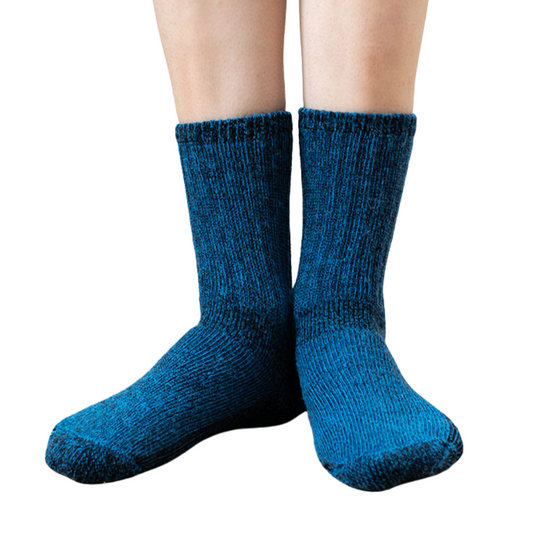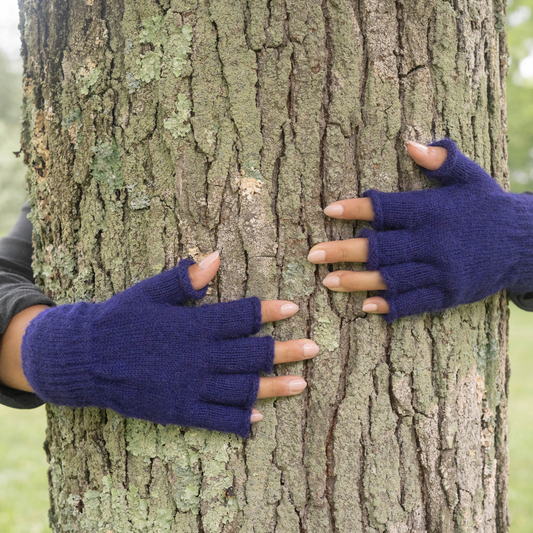Paramedics live in a world of unpredictability. One moment you’re crouched on an icy sidewalk, the next you’re hauling a stretcher up three flights of stairs, and before you catch your breath you’re riding in the back of an ambulance bouncing over potholes. Through all of it, your feet take a beating. Boots, long hours, sweat, and stress don’t cut you any slack. Socks may sound like the smallest piece of gear, but the wrong choice can turn an already brutal shift into torture. The best socks for paramedics are alpaca boot socks with heavy cushioning, moisture control, and lasting durability.
Shifts That Don’t End
Paramedic shifts can stretch to 12, 16, or even 24 hours. That means socks aren’t just for comfort—they’re survival. Cotton socks start soft but by the halfway point they’re damp, flat, and smelly. Alpaca socks keep their loft and cushion all day, supporting arches and heels from call to call. Reinforced heels and toes handle the grind of climbing in and out of rigs, kneeling on pavement, and hustling gear bags without blowing holes.
Hot Calls, Cold Calls
A paramedic’s work environment changes minute by minute. You might start treating a patient in freezing sleet, then step into a sweltering ambulance full of equipment running hot. Cotton socks are terrible here—cold when damp, sticky when hot. Alpaca adapts. Hollow fibers act like mini-insulators, trapping heat in the cold but releasing it in heat. You don’t need separate socks for summer and winter—alpaca does both.
Sweat and Blisters
Emergency calls aren’t gentle. Sprinting, climbing stairs, or standing roadside in heavy boots builds sweat quickly. Cotton socks soak it up, and synthetics wick but create hot spots. Alpaca fibers wick moisture off your skin and spread it out to evaporate. The result? Drier feet, fewer blisters, and one less thing dragging you down when you’re hauling a trauma bag into a third-floor walk-up.
Comfort Under Pressure
Paramedics need clear heads and quick reactions. Something as small as sagging socks, itchy wool, or damp feet can steal focus from where it belongs—the patient. Alpaca socks are itch-free, smooth, and snug without cutting circulation. They stay in place all shift, giving you one less distraction during high-stress moments.
Odor Resistance
Nobody wants to end a double shift with socks that reek up the locker room. Cotton socks smell awful, and synthetics hold odor like glue. Alpaca naturally resists bacteria growth, keeping socks fresher and reducing foot odor even after long, sweaty runs.
Comparing the Options
-
Cotton socks: Soft at first, but terrible with moisture. Flatten quickly, no insulation when wet, stink fast.
-
Synthetic socks: Good at wicking sweat, but trap odor and can overheat.
-
Wool socks: Warm, durable, but itchy for many and bulkier in tight boots.
-
Alpaca socks: Cushioned, moisture-wicking, warm-but-breathable, odor-resistant, itch-free. They check all the boxes.
For paramedics, alpaca socks aren’t a luxury. They’re field gear. They wick sweat, hold warmth, resist odor, and last longer—keeping you ready for whatever the siren throws at you.





